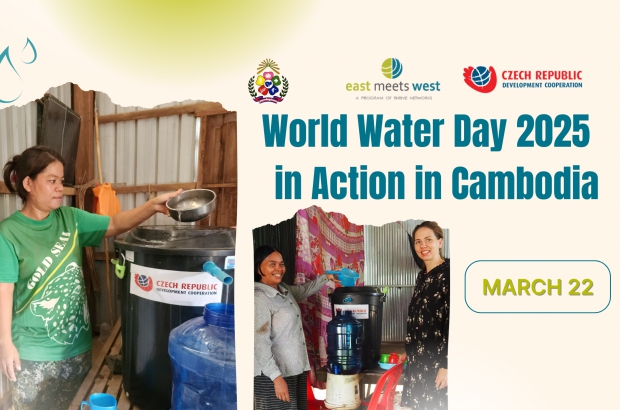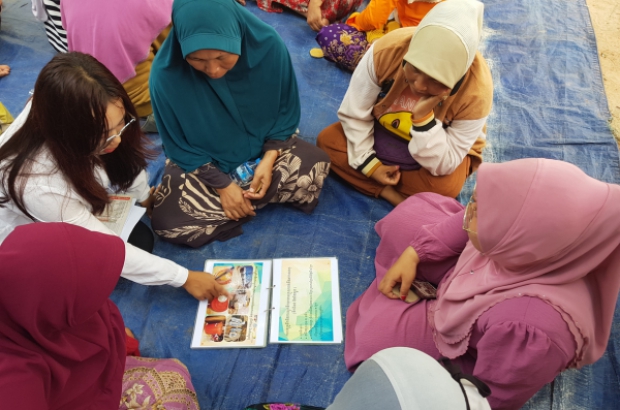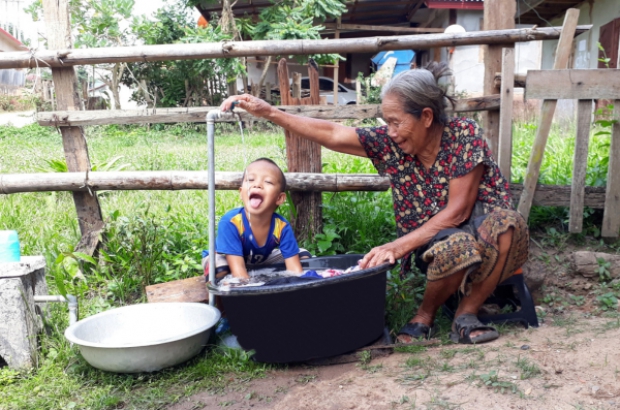Let’s Not Go Back to Business as Usual: HappyTap Partnership with EMW in Vietnam
2766
Handwashing: the real deal
Called the “do-it-yourself” vaccine[1], washing hands with soap is the most cost-effective and reliable way to prevent potentially deadly diseases such as parasites, respiratory infections and diarrhea.
In a joint statement this past Global Handwashing Day 2020, Henrietta Fore, Executive Director of UNICEF, and Dr. Tedros Adhanom Ghebreyesus, Director-General of the World Health Organization, said, “…the majority of people in the least developed countries are at immediate risk of COVID-19 infection due to a lack of hand hygiene facilities. In the 60 highest-risk countries, 2 out of 3 people – 1 billion people in total – lack basic handwashing facilities with soap and water at home. Around half are children... We cannot overstate the threat.”
Education is not enough — we also need facilities
Despite multi-million dollar hygiene education programs and decades of awareness campaigns, people are still not washing their hands[2]. Today, only 19 percent of the global population wash their hands with soap after contact with excreta.[3]
Experts agree that the best opportunity to change handwashing behavior lies in access to a convenient and desirable facility.[4] A recent study estimated that people were twice as likely to wash their hands if they had a designated handwashing facility.[5] Similarly, sink visibility directly impacts on handwashing frequency and duration.[6] The idea is simple enough—people must have handwashing facilities in order to wash their hands more. The SDGs recognize this: the indicator for hygiene (6.2.1) measures the percentage of households with a handwashing facility.
What’s available right now? HappyTap.
HappyTap is the world’s first purpose-built, affordable portable sink designed using an iterative human-centered process. HappyTap Co.’s formative research in Vietnam found that mothers desired something modern and easy to use and maintain. Made of sturdy food-grade plastic, HappyTap has a 15 liter water tank for short trips to the water source and a sprinkler tap that conserves water while fully covering hands during washing. It is a ready-to-go solution for environments with limited piped water infrastructure.
As schools plan to reopen during the COVID-19 pandemic, setting up multiple HappyTaps is a way to immediately modify a classroom with appropriate handwashing access.
An immediate response and future investment
From April to December 2020, East Meets West (EMW) partnered with HappyTap to deliver 2,710 units for schools and families in 173 communes in Vietnam. EMW is facilitating cooperation between the Vietnam Women’s Union (a government-led entity and the largest women’s union in the world), preschools, teachers, school administrators, and HappyTap to promote handwashing facilities and safe handwashing behavior.
Among the activities was a training for the Women’s Union and preschool teachers on behaviour change communications, and events at kindergartens to set up HappyTaps and demonstrate safe handwashing practice with soap.
This partnership presents an opportunity to evaluate and understand barriers to handwashing with soap. EMW is planning to conduct quantitative and qualitative analysis through surveys and collaboration with the Women’s Union and HappyTap recipients.
Let’s get washing
It is well past time to evolve how we tackle handwashing with soap behavior change. EMW and HappyTap have created a unique partnership — strengthening the system for increasing access to hygiene facilities with local actors and appropriate, immediately deployable product solutions. Join us to harness this spotlight on hygiene to create genuine, lasting change.
About HappyTap
HappyTap Co. is a social business whose mission is to make handwashing delightful for everyone. Founded in 2013 in Vietnam, they use the latest evidence and behaviour-centered design to improve basic health. To learn more, visit: https://happytap.net and on Twitter, @HappyTap_TM.
[1] [Handwashing] been called the “do-it-yourself” vaccine, yet despite its low cost and proven benefits, rates of handwashing with soap are very low throughout the world.”- World Bank Water & Sanitation Programme (2012)
[2] World Bank, What Gets People to Wash Their Hands, October 2016, https://www.worldbank.org/en/programs/sief-trust-fund/brief/what-gets-people-to-wash-their-hands
[3] Freeman, Matthew C, et al. (2014). “Hygiene and health: systematic review of handwashing practices worldwide and update of health effects.” Tropical Medicine and International Health. Volume 19, No. 8 pp 906–916. doi:10.1111/tmi.12339
[4] White et al. The determinants of handwashing behaviour in domestic settings: An integrative systematic review. International Journal of Hygiene and Environmental Health, June 2020. https://doi.org/10.1016/j.ijheh.2020.113512
[5] Note: after potential fecal contact, people were twice as likely to wash their hands if they had a designated handwashing facility. Wolf, J., et. al. Handwashing with soap after potential faecal contact: global, regional and country estimates, International Journal of Epidemiology, 48(4), Aug 2019, 1204–1218, https://doi.org/10.1093/ije/dyy253
[6]https://www.researchgate.net/publication/261953659_The_important_role_of_sink_location_in_handwashing_compliance_and_microbial_sink_contamination
Related News
3296
Transitioning from external funding to local government fund management
Under the support of the Australian Government Department of Foreign Affairs and Trade through Water for Women Fund, East Meets West Foundation (EMWF) has launched the Community Led, Inclusive, Climate Resilient (CLICR) WASH project in 30 communes across 15 districts and 6 provinces in Cambodia from January 2023 to December 2024. One of the key objectives of this project is to enhance menstrual health and hygiene (MHH) for women and girls while promoting climate resilience.
3560
A Stream of Change: Mrs. Pik’s Water Transformation
After collecting water for consumption and domestic use for more than 70 years, today Mrs. Pik, a 75-year-old widow living in Paklay District, Xayyabouly Province, can remove the heavy bamboo pole and water bucket from her shoulders. During a household visitation, she told East Meets West’s field staff.



